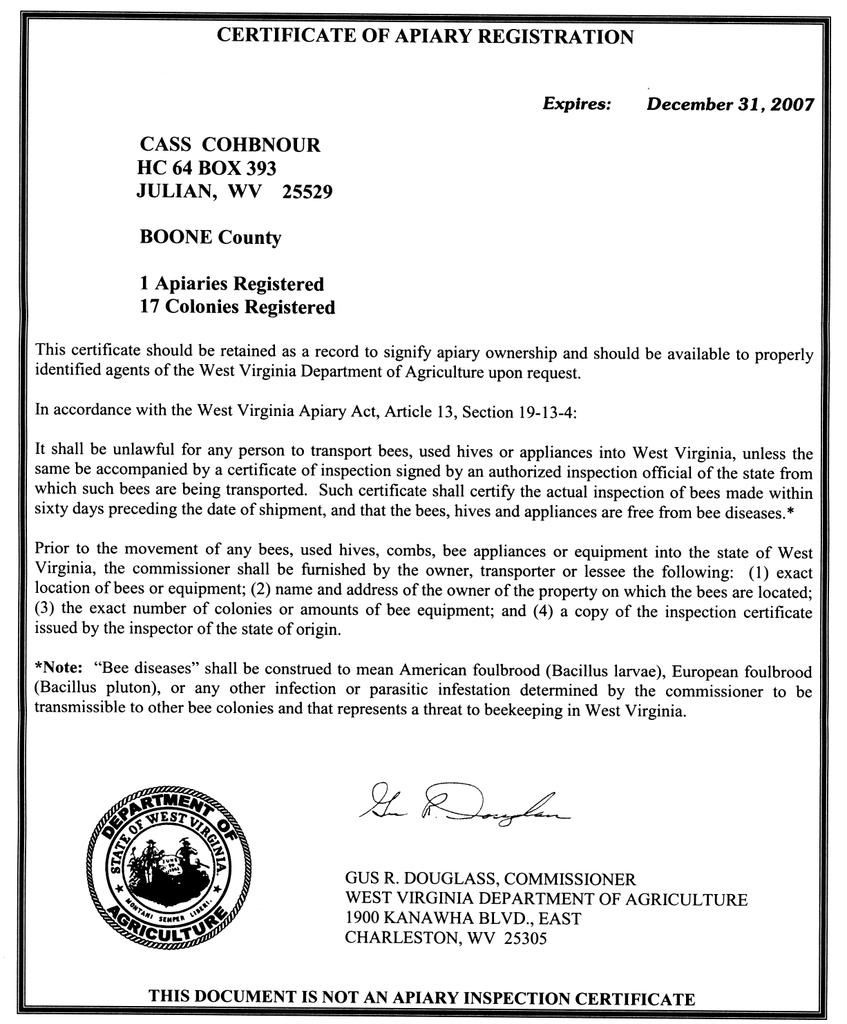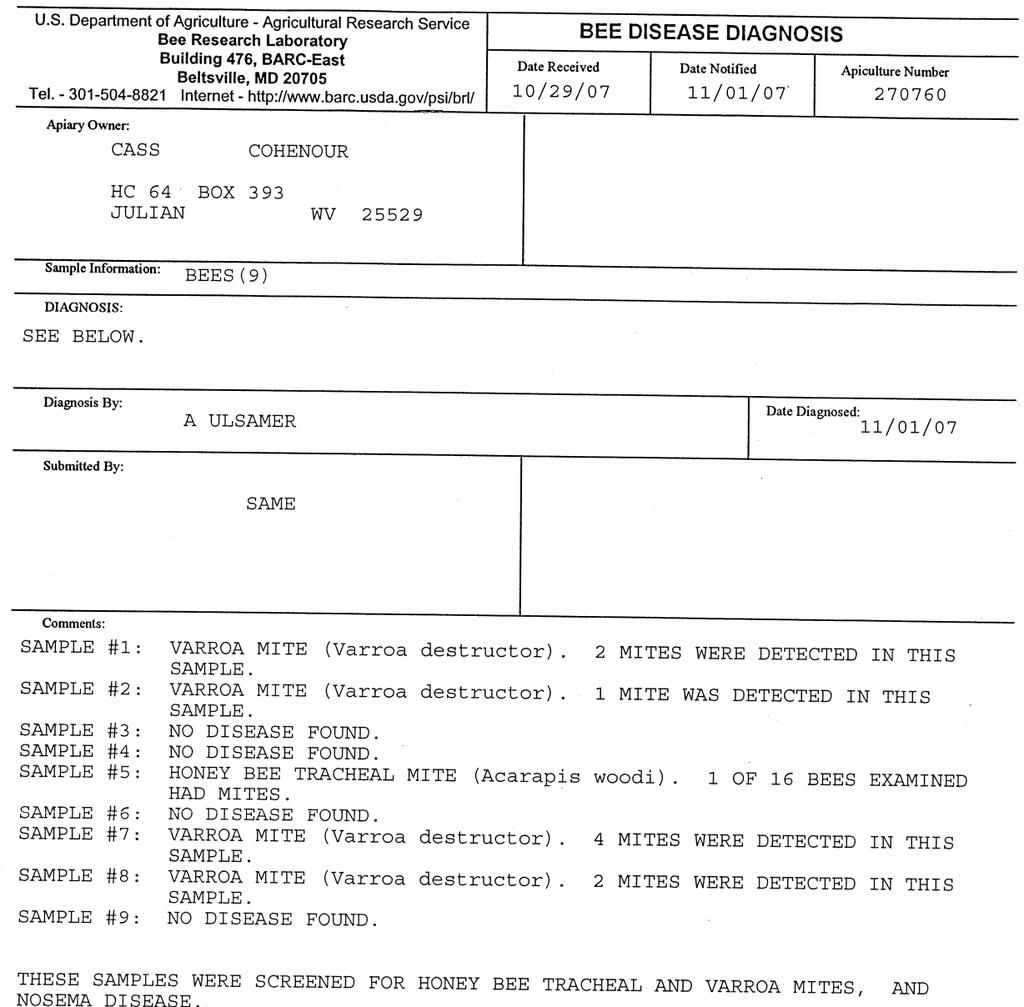This year the West Virginia Dept of Ag is giving beekeepers in the state one gallon of corn syrup and one treatment of Api Life Var for each colony registered with the state. In the past the state has assisted beekeepers with mite treatments as I mentioned in my previous post.
Here is what a Certificate of Apiary Registration in WV looks like.

I no longer use chemical treatments in my hives but I still monitor for mite levels and submit samples for testing of tracheal mites and nosema disease. Though my colonies appeared healthy and robust and with low mite counts, I submitted some samples to the Beltsville Bee Lab for analysis by a trained technician. The results I received verified that my colonies have low mite counts. I was more interested in seeing if any of my colonies had nosema or tracheal mites. I got a clean bill of health for the nosema however one of my overwintered colonies that I acquired as a swarm in southwestern VA had tracheal mites. The level of infestation was at 16%. An infestation level of %30 can cause a colony to collapse during the winter months. Hopefully this colony will make it through the winter. In the future when doing cutouts I plan on collecting and submitting samples from the colony before I even begin the extraction process. I definitely do not want to bring any nosema or tracheal mite infested honeybees into my apiary and am considering not collecting swarms from other people as well.
To me it was important to submit the samples. I had five colonies left after the spring bear attack and did a wall extraction of a colony. I made some nucs from these colonies to increase my numbers. I turned the six colonies into twenty. I sold three colonies and gave my daughter a nuc. The samples I sent were from my overwintered colonies, the feral colony I got from the cutout, and from a few of the nucs which had the feral queens daughters in them. I was satisfied with the results. I used the feral queens daughters in all the nucs I made and the nuc I made from the hive that tested positive for tracheal mites was not infested with the parasite. This is good news because it now seems that the offspring of the feral queens daughter have a resistance to tracheal mites. I will submit some more samples this March to see how the faired over the winter.
Submitting samples is easy and it is free. The only it costs is the price of postage, a few ziplock baggies, some rubbing alcohol, and some time. Anyone who is interested in submitting samples to the Beltsville Bee Lab just click on the link to the left of the page and follow the links on the USDA website.
This is what a Bee Disease Diagnosis sheet looks like.

I am doing my best to not chemically treat my colonies for parasites or disease. I have not treated for anything for four years after I started monitoring mite levels. I also do not believe in prophylactic treatments. Don't treat your bees just because everyone else does. Monitor your mite levels and send samples for analysis to make sure you need to treat. To me it is a waste of your time and money to treat for tracheal mites or nosema if you do not have it. The only way you will now is if you learn to examine your bees yourself with a microscope or to send samples to a laboratory. There is some research that shows that chemical treatments for varroa can have ill effects on your bees. Infertile drones, queens with low body weight, and queens which are superseded often are a few of the ill effects that chemically contaminated brood comb can have on your colony. I hope this helps those of you who are treating prophylactically, are not registering your apiary, or are not submitting samples for disease diagnosis.
